Health Articles & Guides: Real Help for Everyday Wellness
Looking for straight‑forward answers about your meds, conditions, or supplements? You’ve landed in the right spot. Here at RX2World we break down the science into bite‑size pieces you can actually use. Whether you’re trying to understand why a new prescription makes you feel odd or want to know which herbal tea supports your immune system, our health collection gives you the facts without the jargon.
Medications Made Simple
Prescription labels can read like a foreign language. That’s why we’ve pulled together easy‑to‑read guides on everything from blood thinners to diabetes pills. Each article highlights what the drug does, how it should be taken, common side effects, and a few practical tips you won’t find on the pharmacy’s pamphlet. Got questions about warfarin dosage adjustments or how pioglitazone helps control blood sugar? Our step‑by‑step breakdowns answer them in plain English.
We also keep an eye on the latest safety alerts, like the recent debate over weight‑loss drugs Alli and Xenical. When new research pops up, we explain what it means for you, so you can talk confidently with your doctor. No more guessing whether a change in your prescription is routine or a red flag.
Living Well with Supplements & Lifestyle
Supplements sit in a gray zone between food and medicine. Our articles cut through the hype by showing the real benefits of herbs like Labrador Tea or nutrients such as vanadium. We cover how they interact with common meds, the right dosages, and who should avoid them. Think of it as a quick health cheat sheet you can reference before adding a new bottle to your cabinet.
Beyond pills, we share lifestyle hacks that actually move the needle—like managing nocturnal sweats in asthma or reducing edema by watching your salt intake. The goal is simple: give you actionable steps you can start today, not just a list of facts.
Got a specific condition you’re curious about? Use the search bar to pull up articles on everything from kidney‑related edema to antibiotic resistance. Each piece is written by a pharmacy‑savvy writer who checks the latest guidelines, so you get reliable, up‑to‑date information every time.
We know health decisions feel personal, and the internet can be overwhelming. That’s why every article ends with a quick checklist: what to watch for, when to call your provider, and a tip to make the next step easier. It’s like having a mini‑coach in your pocket.
So, whether you’re a newbie trying to decode your first script or a seasoned patient staying on top of chronic care, explore the Health category and take charge of your well‑being with confidence.
Remote microphone systems help people with hearing loss understand speech in noisy places by delivering clear sound directly to hearing aids. Studies show up to 61% better speech recognition than hearing aids alone.
Discover how chronotypes affect health, productivity, and daily scheduling. Learn actionable tips to align your routine with your natural rhythm for better sleep and performance.
Liver function tests like ALT, AST, and bilirubin reveal liver damage, not function. Learn how patterns in these numbers help diagnose fatty liver, alcohol injury, bile blockages, and more - without unnecessary scans or panic.
Learn exactly what to bring and discuss at your doctor’s appointment to get better care, avoid mistakes, and make the most of your time. Simple steps that make a big difference.
Learn the early warning signs of psychosis and how Coordinated Specialty Care can dramatically improve recovery outcomes. Early intervention saves futures.
Digestive enzyme supplements can help with GI symptoms like bloating and fatty stools-but only in specific cases like EPI or lactose intolerance. Learn when they work, which type to choose, and how to use them safely.
Herbal supplements in pregnancy are widely used but poorly studied. Ginger is the only one with solid safety data. Most others carry unknown risks-like preterm birth, spotting, or uterine stimulation. Always talk to your doctor before taking anything.
Vasculitis is a serious autoimmune condition where the immune system attacks blood vessels, leading to inflammation, reduced blood flow, and organ damage. Early diagnosis and treatment with steroids or targeted drugs can prevent life-threatening complications.
Discover how gut microbiota influences obesity and how specific probiotics can support metabolic health and weight loss through improved digestion, reduced inflammation, and better fat metabolism.
Chest pain can signal a heart attack-or something less serious. Learn the key signs that mean you need to go to the emergency department right away, what tests doctors use, and why calling 9-1-1 is always the safest choice.




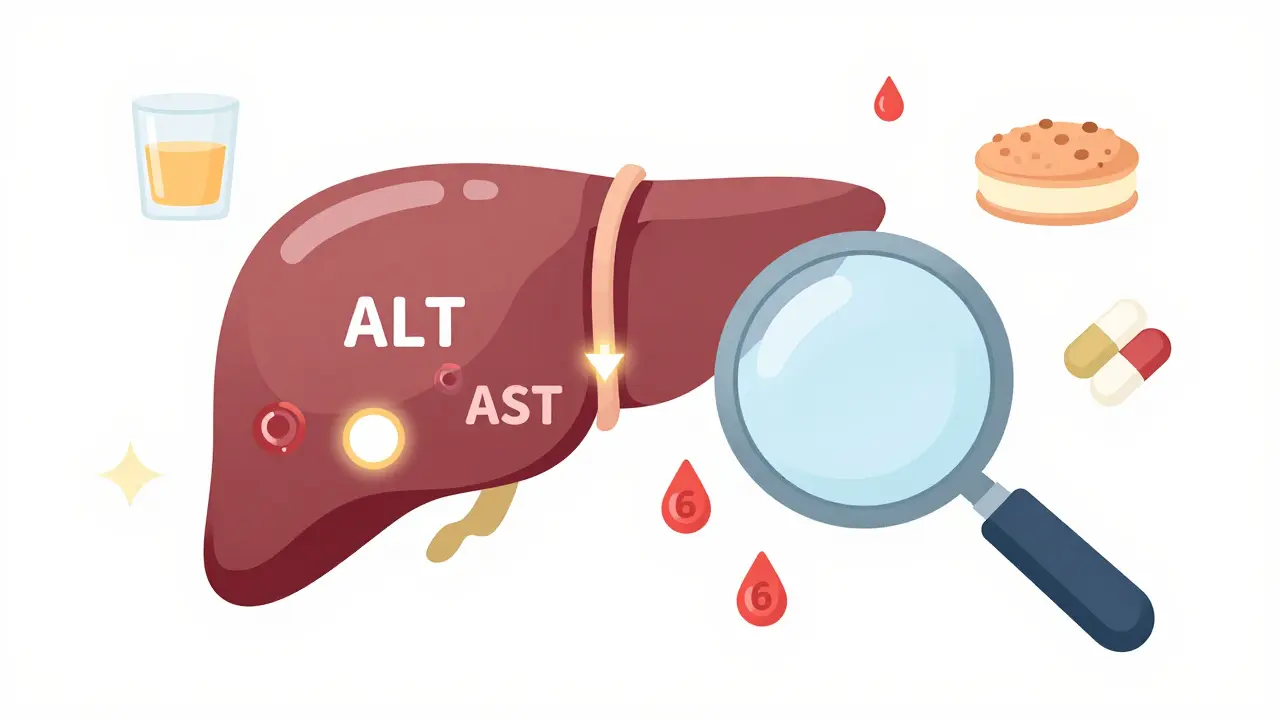


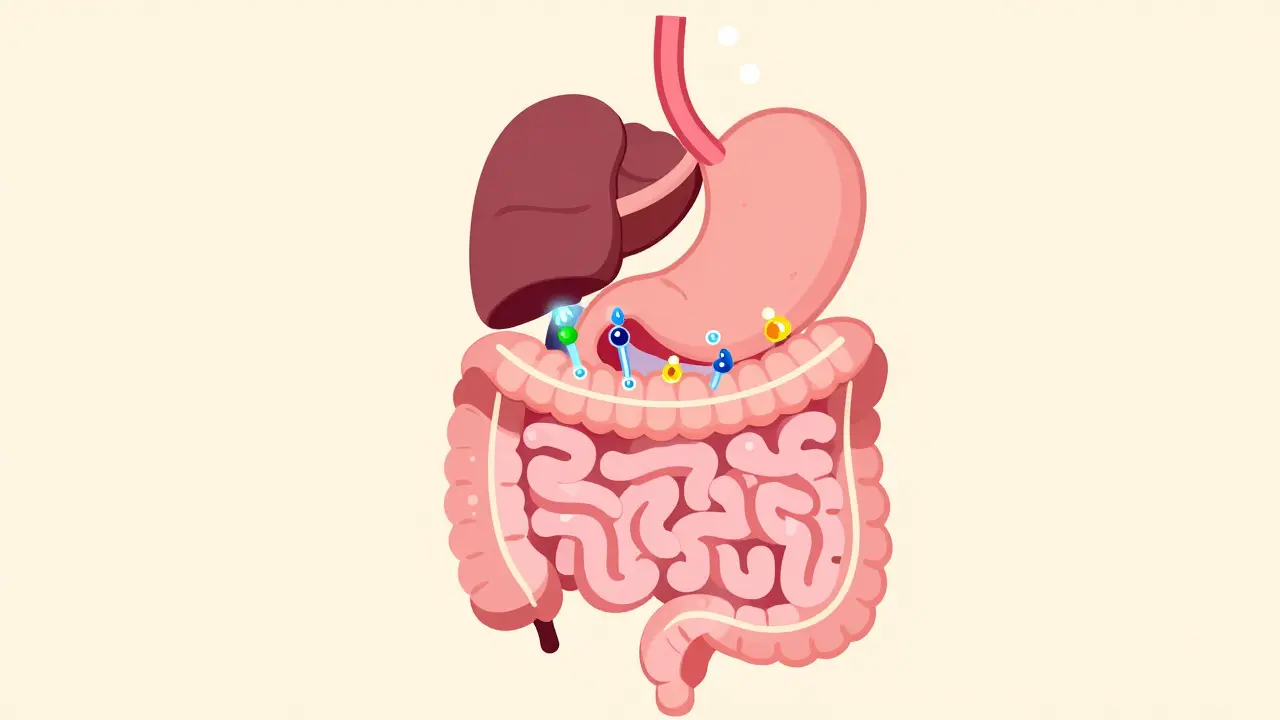
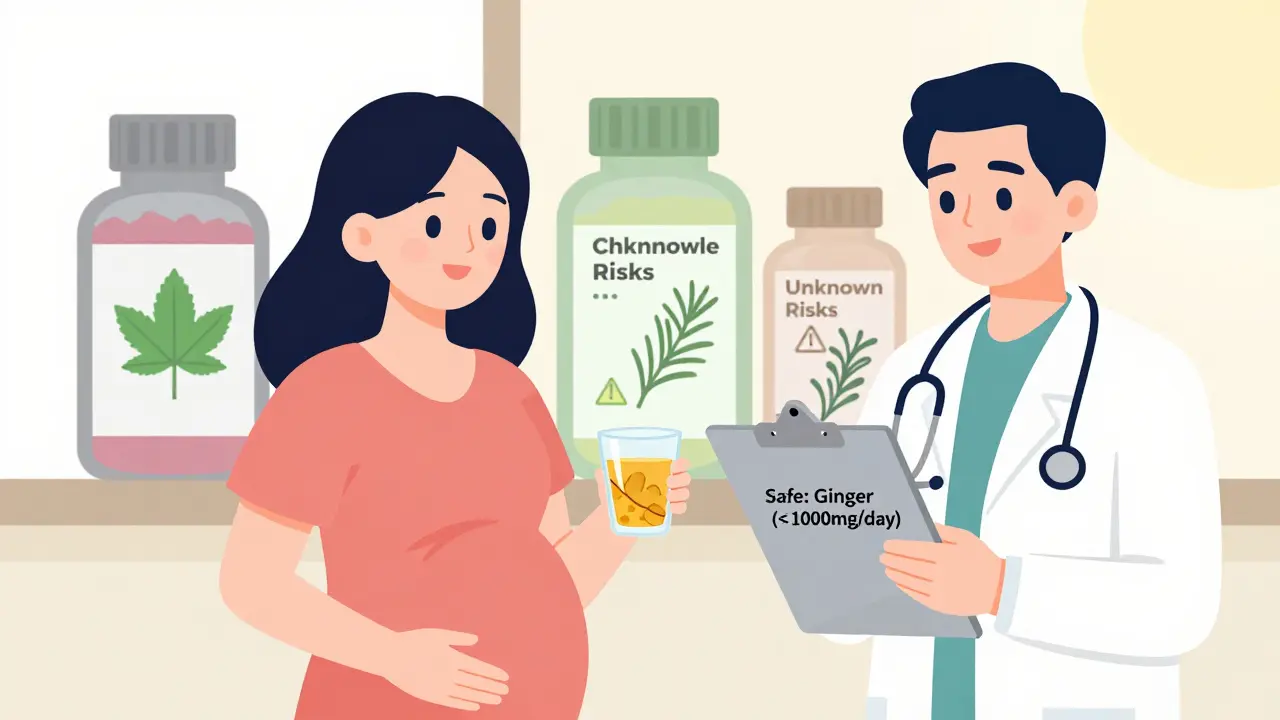
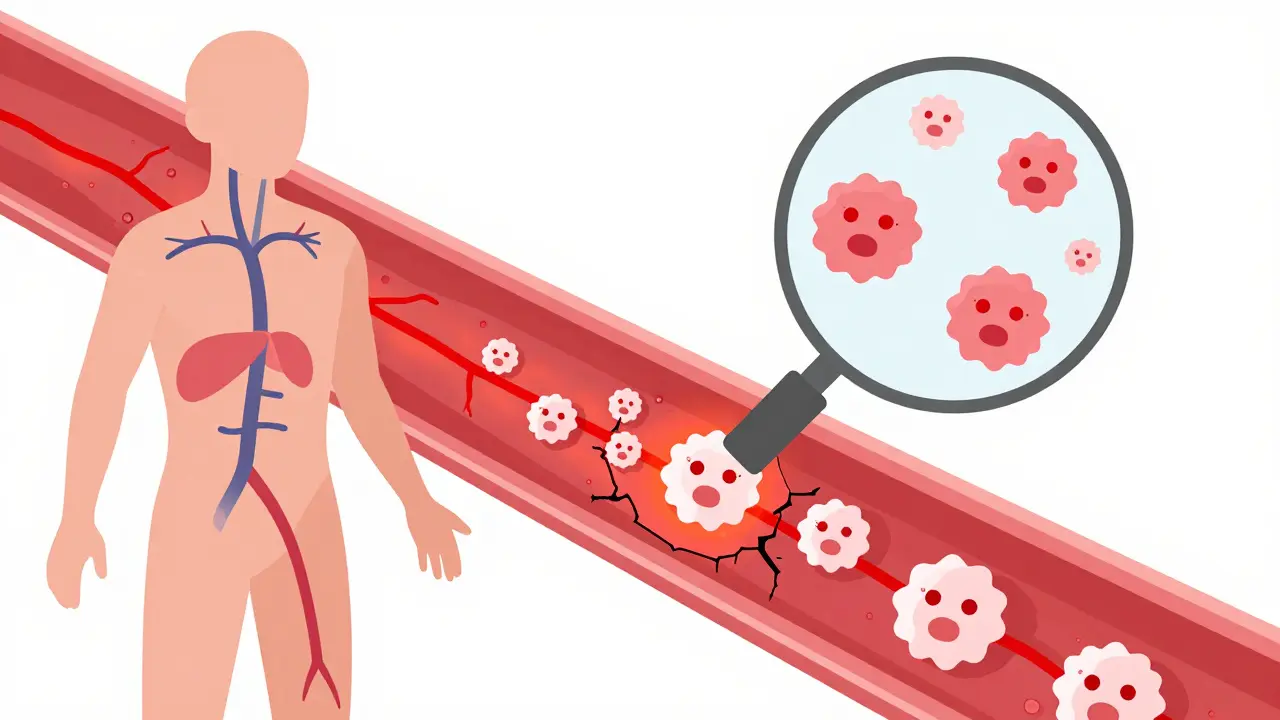
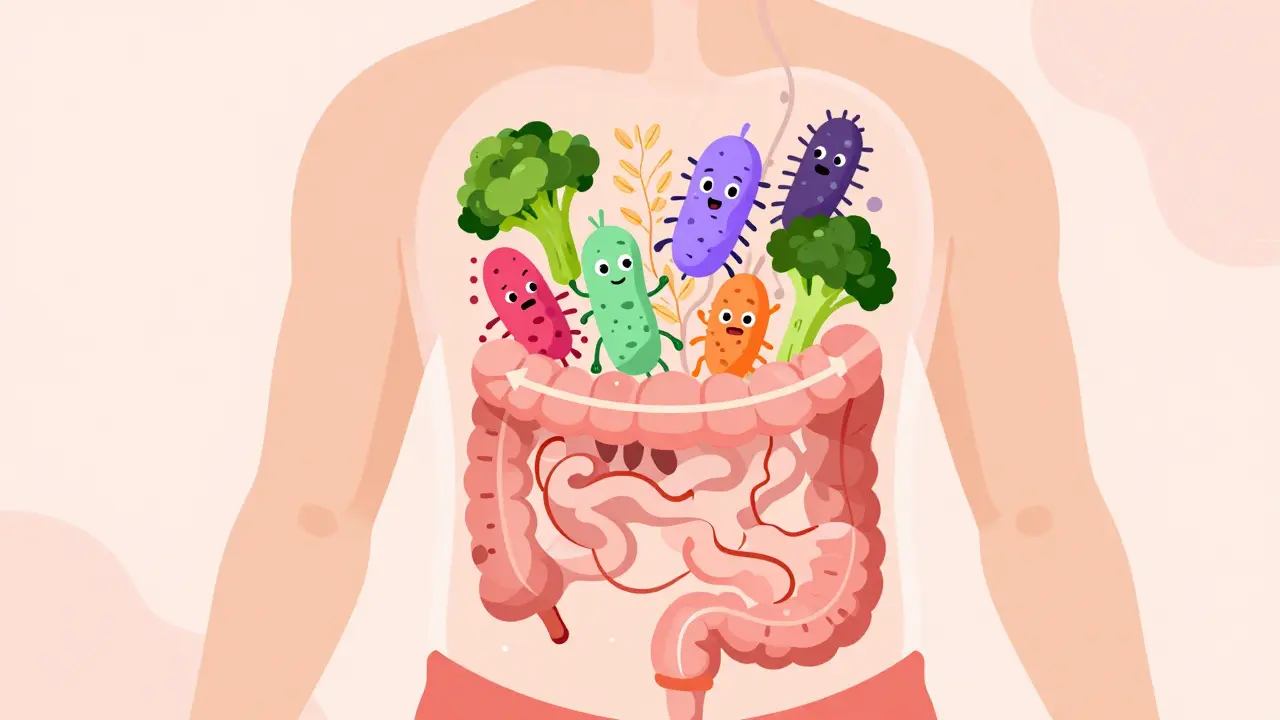
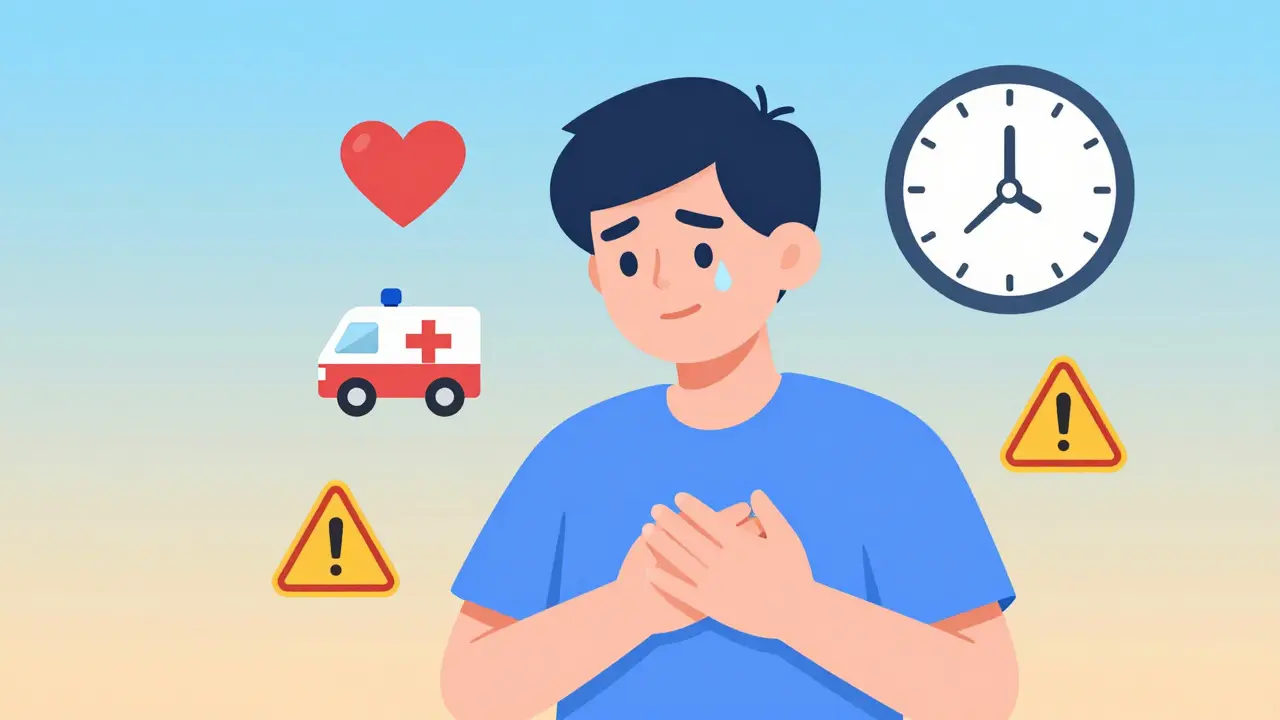
 Medications
Medications




